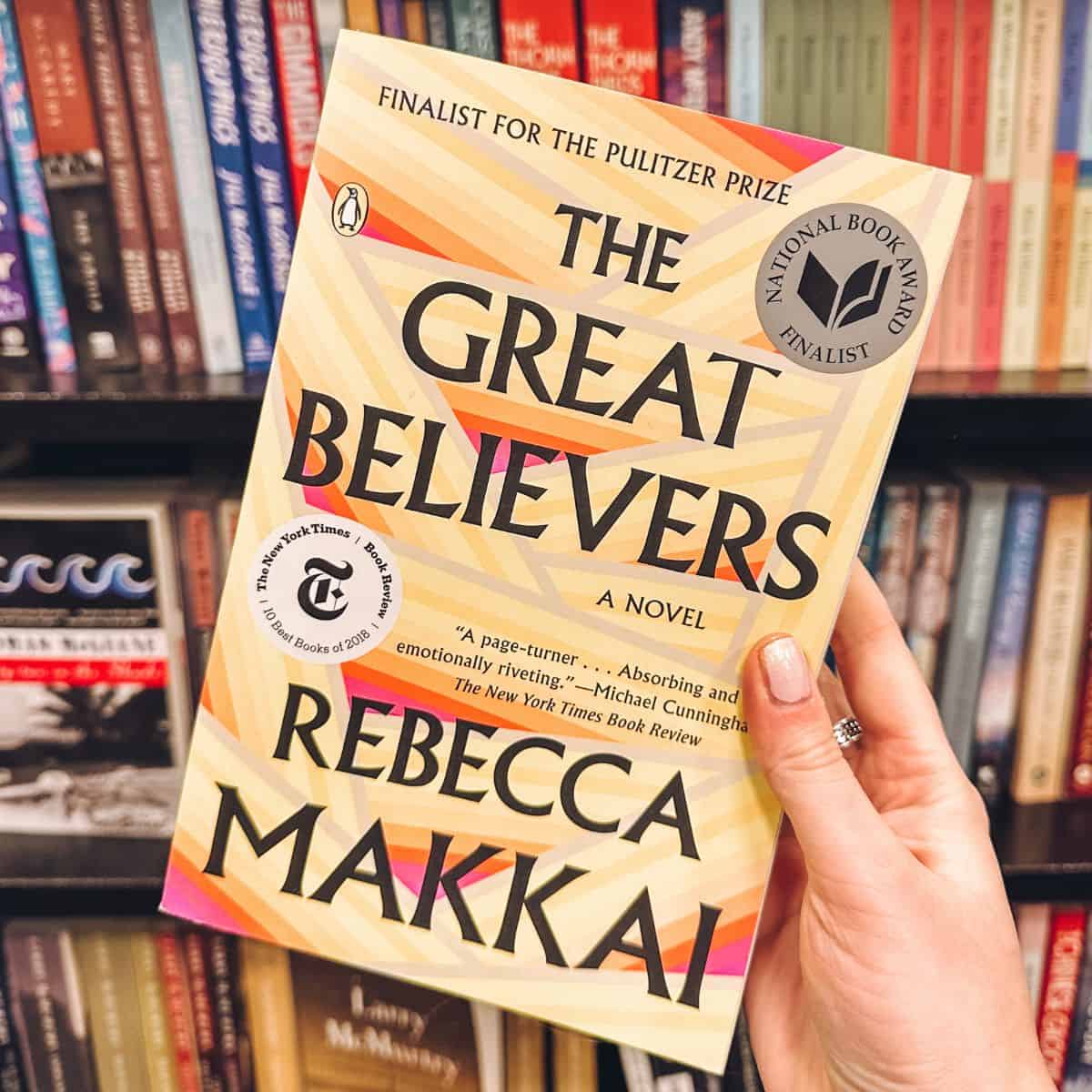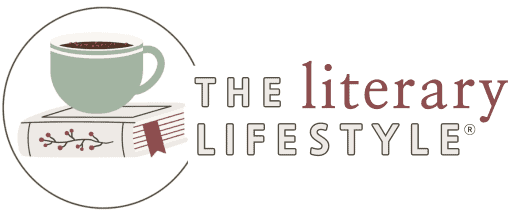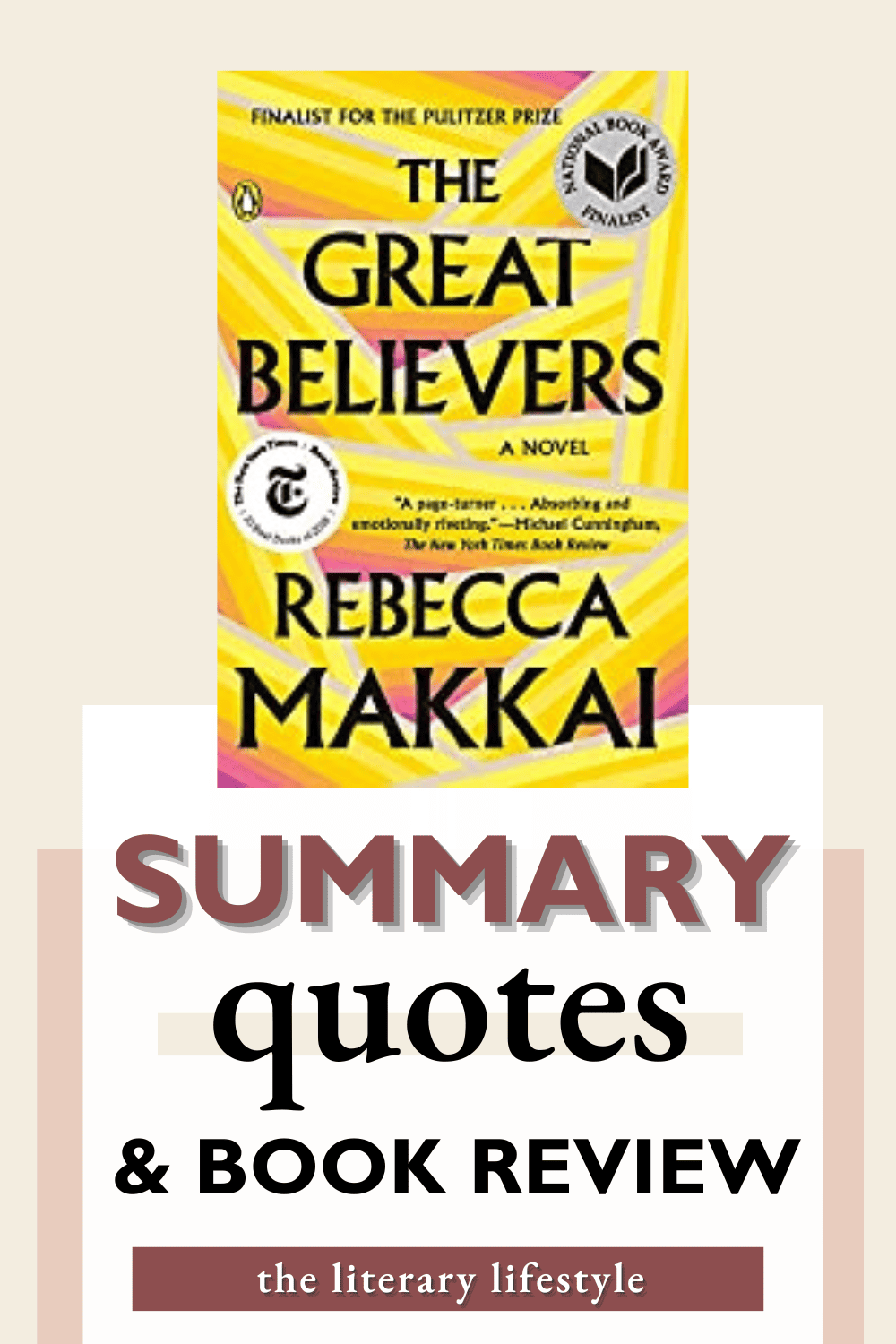This book review of The Great Believers gives you all the details you need to know about this unforgettable LGBTQ novel, including quotes, discussion questions, and book pairings for more like it.

Plot Summary and Review of The Great Believers
- Winner of the ALA Carnegie Medal, Los Angeles Times Book Prize, ALA Stonewall Award, The Clark Fiction Prize, and more
- Finalist for the Pulitzer Prize and the National Book Award
- Shortlisted for the National Book Award
- A Washington Post Notable Book
- A pick for the New York Library’s 2018 best books
- New York Times Ten Best Books of 2018
We were the great believers.
I have never cared for any men as much as for these who felt the first springs when I did, and saw death ahead, and were reprieved—and who now walk the long stormy summer.
—F. Scott Fitzgerald, “My Generation”
The Great Believers is a great historical fiction book about the meaning of friendship in dire historical circumstances.
In 1985 Chicago, Yale, a gay man, lives with his partner and works at an art gallery in Chicago, where he is attempting to obtain a collection of 1920s paintings from an elderly woman named Nora, whose heart was broken in World War I.
Meanwhile, the AIDS epidemic is growing, and although Yale feels safe, more of his friends begin to die, one by one, after his friend Nico‘s funeral.
In one emotional memorial scene, a baritone sings Pie Jesu by Andrew Lloyd Webber. The song has always moved me, and it exquisitely captures the characters’ pain and grief.
Listen to “Pie Jesu” here:
And the War depicted by The Lost Generation becomes a metaphor for Yale’s current life, where he must cope with the fact he may not be “safe” after all. The Lost Generation too suffered from the flu epidemic and grieving alone. About the AIDS epidemic, Nora remarks:
I don’t know how you can compare it to anything else…I don’t know how it’s like anything other than war!
One friend who remains is Nico’s sister, Fiona. In dual timelines, thirty years later, Fiona is tracking down her estranged daughter amidst terror attacks in Paris. She stays with an old friend, a photographer who had documented the AIDS epidemic in Chicago all those years ago, and she grapples with the ways AIDS affected her own life and her relationship with her daughter.
Both Yale and Fiona fight to find beauty in the devastation, and to preserve the memory of those ravaged by this disease.
In one of the most moving chapters I’ve read to date (in any book), Yale recounts that which is missed (both large and small events) by the AIDS victims who died all too soon.
A few larger moments:
The Cubs winning the pennant someday. The Cubs winning the Series. The Cubs continuing to lose.
And a few smaller ones:
The sound of an old door creaking open. The sound of garlic cooking. The sound of typing. The sound of commercials from the next room, when you were in the kitchen getting a drink. The sound of someone else finishing a shower.
While The Great Believers was a slow burn for me, it’s one I haven’t been able to get off my mind in the weeks since I read it and thus, I deem it a must-read.
Quotes from The Great Believers
“If we could just be on earth at the same place and same time as everyone we loved, if we could be born together and die together, it would be so simple. And it’s not. But listen: You two are on the planet at the same time. You’re in the same place now. That’s a miracle.”
“They meant well, all of them. How could she explain that this city was a graveyard? That they were walking every day through streets where there had been a holocaust, a mass murder of neglect and antipathy, that when they stepped through a pocket of cold air, didn’t they understand it was a ghost, it was a boy the world had spat out?”
“If you got it from sleeping with a thousand guys, then it’s a judgment on your promiscuity. If you got it from sleeping with one guy once, that’s almost worse, it’s like a judgment on all of us, like the act itself is the problem and not the number of times you did it. And if you got it because you thought you couldn’t, it’s a judgment on your hubris. And if you got it because you knew you could and you didn’t care, it’s a judgment on how much you hate yourself. Isn’t that why the world loves Ryan White so much? How could God have it out for some poor kid with a blood disorder? But then people are still being terrible. They’re judging him for just being sick, not even for the way he got it.”
“This disease has magnified all our mistakes. Some stupid thing you did when you were nineteen, the one time you weren’t careful. And it turns out that was the most important day of your life.”
“That’s the difference between optimism and naivety. No one in this room is naive. Naive people haven’t been through real trials yet, so they think it could never happen to them. Optimists have been through it already, and we keep getting up each day because we believe we can keep it from happening again. Or we trick ourselves into thinking it.”
“We’d been through something our parents hadn’t. The war made us older than our parents. And when you’re older than your parents, what are you going to do? Who’s going to show you how to live?”
“I had so much love for him, even if it was a complicated love, and where is all that love supposed to go? He was gone, so it couldn’t change, it couldn’t turn to indifference. I was stuck with all that love.”
“Let’s not fall apart over something that hasn’t happened yet.”
“You get afraid of one thing, and suddenly you’re afraid of everything.”
“This disease has magnified all our mistakes.”
Book Club Questions for The Great Believers
As part of my full review of The Great Believers, below are ten book club questions to serve as a discussion guide and/or reading guide for you:
What does the title of The Great Believers mean to you?
Discuss the irony in Yale’s story.
Did you learn something new about the AIDS crisis?
Did you obtain a new perspective from any of the characters?
Discuss the comparison of the AIDS crisis to war.
How did dual timelines change the story for you, for better or worse?
Discuss the difference between friendship and family in The Great Believers.
How might the 1985 storyline in The Great Believers be different today?
Discuss the effects of trauma upon later generations, such as Claire’s.
Discuss the meaning of art in The Great Believers.
Book Pairings
For more like The Great Believers:
- Check out this photo, reminiscent of Yale and his friends, which was author Rebecca Makkai’s desktop wallpaper while writing the novel. (Source)
- Use this The Great Believers character list to keep track of Yale and company.
- Read about The Great Believers in the New York Times and NPR.
- Read more interviews, essays, and resources for The Great Believers.
- Read more LGBTQ books, including this review of A Little Life.
- Listen to music from the Broadway musical Rent, which felt so similar in storyline to me.
- Watch Philadelphia.
- Keep tabs on the TV adaptation optioned by Amy Poehler.
- Donate to the community that inspired The Great Believers.
Buy The Great Believers:


